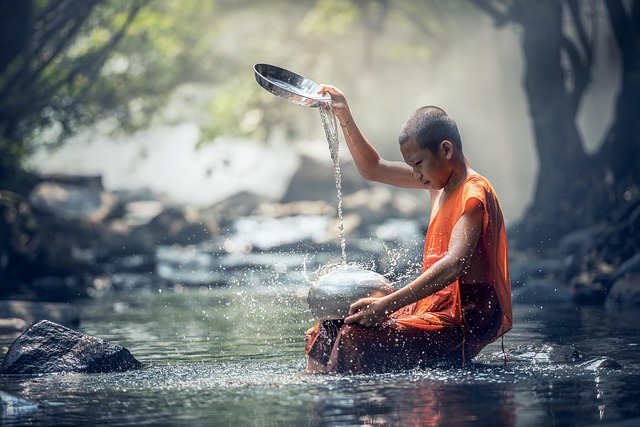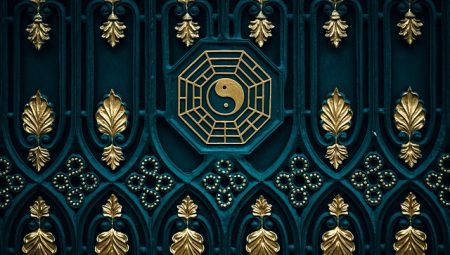Over in Mexico, the Day of the Dead is a vibrant, colorful celebration that feels alive with joy. Families create altars adorned with marigold flowers and sugar skulls, inviting their ancestors to return for a day of fun and remembrance. This lively tradition is a reminder that death isn’t the end; it’s just another part of life’s beautiful journey. And let’s be honest, who wouldn’t want a chance to share stories, laughter, and maybe even a few tacos with their loved ones who’ve passed on?
In African cultures, ancestor worship is woven deeply into the fabric of community life. Here, honoring the ancestors often means consulting with them for guidance or blessings. It’s like having a direct line to wisdom from those who came before. Rituals might include dances or songs that resonate through the air, making you feel part of something much bigger than yourself.
So whether it’s through ritual feasts, vibrant celebrations, or quiet reflections, cultures around the world have carved out special ways to honor their ancestors. It’s this shared human experience that reminds us: we’re all part of one big family tree, roots and all.
Echoes of the Past: Discovering Global Traditions of Ancestor Veneration
What drives this deep-seated reverence for ancestors? It’s the belief that those who’ve passed on still hold a significant role in our daily lives. For instance, in Mexico, Día de los Muertos (Day of the Dead) transforms cemeteries into vibrant celebrations, where sugar skulls and marigolds dance under the moonlight to welcome lost loved ones back for a night of joy and remembrance. It’s like throwing a big family reunion, just with a twist of the supernatural!

Remembering the Roots: A Journey Through Cultural Practices That Honor Ancestors
Have you ever sat around the table and shared stories about your grandparents? Those moments are magic! They’re not just stories—they’re the living heartbeat of our heritage. When we bring out grandma’s special recipe, we’re not only savoring delicious flavors; we’re tasting history. It’s as if each bite whispers tales of love, hardship, and resilience.
Cultural practices serve as bridges across time. Take a moment to reflect: when was the last time you participated in a festival or ceremony that your ancestors cherished? Such events can feel like stepping into a time capsule, where music and dance capture the essence of a culture. Just like the rhythmic drumbeats that echo in your chest, they remind us that we are part of something larger than ourselves.
Remembering the roots doesn’t have to feel daunting, either. It can be as simple as lighting a candle in remembrance or wearing a piece of heirloom jewelry that carries a story. These small acts become powerful symbols of connection, honoring the struggles and triumphs of those who came before us.
So, how do you keep your own roots alive? It could be through storytelling, maintaining traditions, or even exploring your family’s history. Each effort layers more meaning into the tapestry of your life, ensuring that those beautiful stories continue to be told.
From Altars to Rituals: How Various Cultures Celebrate Their Ancestry
In many Latin American countries, Día de los Muertos or the Day of the Dead stands as a vibrant tribute to those who have passed. Imagine colorful sugar skulls and marigold petals sweeping across sidewalks, transforming cemeteries into lively parties where living and deceased share a space. Families come together, building altars adorned with photographs, favorite foods, and mementos, creating a beautiful invitation for spirits to join the celebration.
On the flip side, in parts of Asia, honoring ancestors is woven into daily life. Take the ancient practice of ancestor veneration in China, where families set up intricate altars in their homes. It’s like creating a sacred corner of love, where incense dances in the air, and offerings are made to invite ancestral blessings. During festivities like Qingming or Tomb-Sweeping Day, people comb through graveyards, cleaning tombstones and leaving fresh flowers, ensuring the bond between the past and present remains strong.
Now, think about the Native American powwows, where ancestral stories echo through the drumming and dancing. It’s a different kind of reverence, marked by celebration and remembrance, as individuals connect with their lineage and express their gratitude. The rhythm of the drums pulses like a heartbeat, uniting not just families but entire communities.
Across civilizations, these rituals and altars mirror our innate desire to keep loved ones close, to honor where we came from, and to celebrate the lives that paved the way for our own journeys. Isn’t it fascinating how such diverse cultures find common ground in reverence and memory?
Legacy and Love: Unveiling Unique Ancestral Tributes Around the World

Now, let’s take a stroll through the cobbled streets of Italy, where families cherish their culinary heritage. Recipes passed down through generations are more than just food; they’re a manifestation of love and history. Imagine savoring your grandmother’s secret sauce, the aroma alone could transport you back in time. These meals are delicious legacies that bind families together, peppered with laughter and memories.
Traveling to Asia, we find unique practices like ancestral altars in homes. These sacred spaces are adorned with photographs and mementos, reflecting a familial love that stretches across time. Each offering made is a silent conversation with the past, reminding families of their origins and the values instilled by those who walked before them.
Honoring Those Who Came Before: A Cultural Exploration of Ancestral Reverence
Each culture has its unique way of showing respect to ancestors. Some light incense and offer food, believing the spirits of their loved ones enjoy the aroma and share in the meal. Others craft elaborate rituals filled with dance and song, where the voices of the past resonate through the laughter of the present. Don’t you find it fascinating how these traditions cultivate a sense of belonging? It’s like having a family reunion that spans centuries, where every story shared enriches our lives today.
Ancestral reverence isn’t merely a nod to the past; it’s a bridge connecting us to our heritage. It whispers in our ear when we face challenges, reminding us of the resilience passed down through generations. By honoring those who came before, we’re celebrating a lineage of strength and wisdom, like a tree with deep roots, steadfast against the storm.


![How Do Different Cultures Celebrate New Year [Global Guide]? How Do Different Cultures Celebrate New Year [Global Guide]?](https://travel-tips.net/wp-content/uploads/2025/09/how-do-different-cultures-celebrate-new-year-global-guide-1758919069304-450x255.png)

![What Makes Japanese Tea Ceremony So Significant [Cultural Guide]? What Makes Japanese Tea Ceremony So Significant [Cultural Guide]?](https://travel-tips.net/wp-content/uploads/2025/09/what-makes-japanese-tea-ceremony-so-significant-cultural-guide-1758919144390-427x255.jpeg)